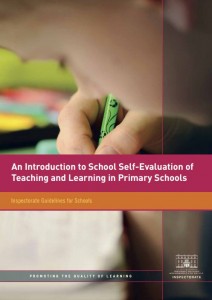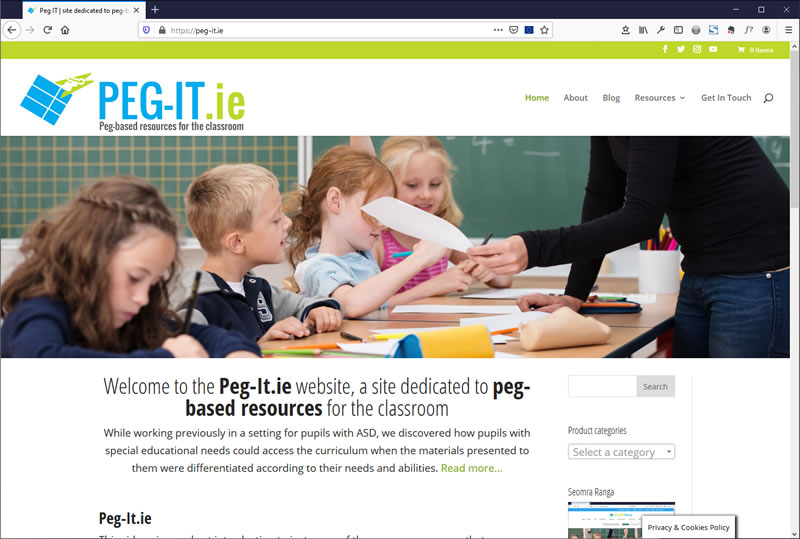 School Self-Evaluation (SSE) is something that we are going to hear a lot more about over the coming years as the process of schools evaluating their own policies and practices will become a core part of the planning process of the school. The Minister for Education and Skills, Ruairi Quinn, recently launched new school self-evaluation guidelines to support schools to evaluate their own work and to set targets to improve teaching and learning. The aim is to help to achieve the targets set out in the Programme for Government and in the National Literacy and Numeracy Strategy, launched by the Minister last year. At the launch of the guidelines, the Minister said:
School Self-Evaluation (SSE) is something that we are going to hear a lot more about over the coming years as the process of schools evaluating their own policies and practices will become a core part of the planning process of the school. The Minister for Education and Skills, Ruairi Quinn, recently launched new school self-evaluation guidelines to support schools to evaluate their own work and to set targets to improve teaching and learning. The aim is to help to achieve the targets set out in the Programme for Government and in the National Literacy and Numeracy Strategy, launched by the Minister last year. At the launch of the guidelines, the Minister said:
“We need a balanced and credible approach to quality assurance of schools that involves both external inspection and internal school self-evaluation. That is why I am introducing a new system of school self-evaluation for all schools.“
The Minister formally announced that all schools would be required to introduce self-evaluation in the school year 2012-13 and build capacity to evaluate their own work in the years ahead. Over the next three years, schools are expected to evaluate and report on their work in literacy, numeracy and one other area. The process will involve schools in gathering information from a range of sources, analysing the data and identifying the strengths and areas for development and improvement.
During the school year 2011/2012, six primary and six post-primary schools took part in a pilot programme engaging in a process of self-evaluation using draft SSE guidelines and tools. As a result of this, the process is being rolled out to all primary and post-primary schools during this school year. The following video explains the benefits of the SSE process to the pilot schools.
Other videos, resources, notes and guidelines on the process of SSE are available on a new dedicated SSE website at http://schoolself-evaluation.ie/





